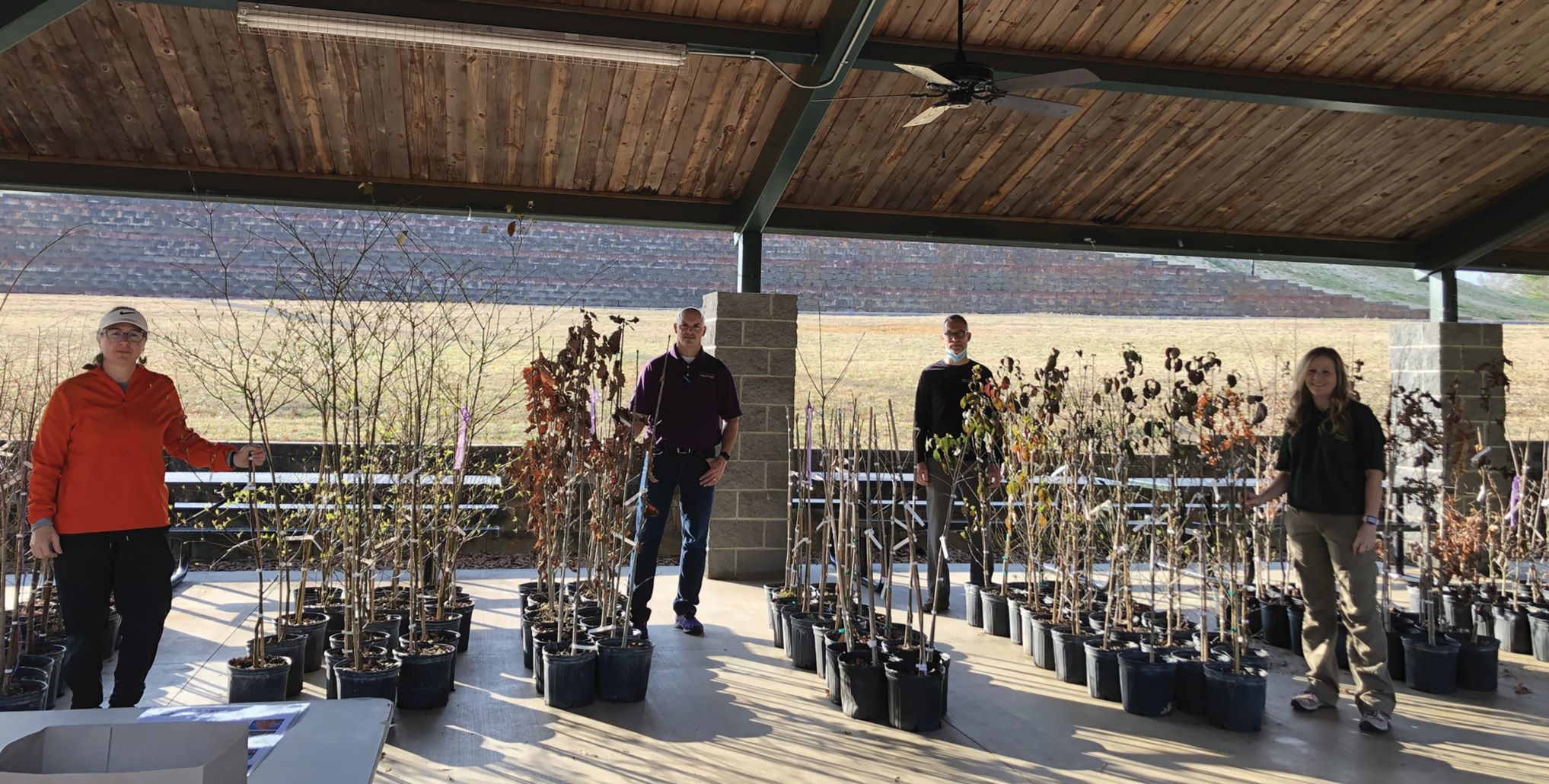You probably remember the famous “wanted” posters used in the Old West during the 19th century to hunt down and capture notorious criminals. The posters use bold typography and audacious headlines as a way to distribute information to the public.
In South Carolina, a bounty has been put out on one of the most serious invasive plant species: the elusive Bradford pear tree. In 2019, Clemson University teamed up with the South Carolina Forestry Commission to declare war on this notorious invader, asking landowners to cut down their Bradford Pears and exchange them for native replacement trees: the “Bradford Pear Bounty.”

Clemson University and the South Carolina Forestry Commission are working to eliminate the Bradford Pear from the state via the "Bradford Pear Bounty."
The urban landscape is threaded with many nonnative ornamental plants. Though most of these are harmless, a small cohort of exotics escape the planted environment, leak into our forests and become major invasive problems. They threaten native plant communities by aggressively outcompeting them and replacing them in their natural habitat. This contributes to biodiversity loss and a less resilient landscape.

At Bradford pear bounty events like this one in Clemson, landowners can bring photos
of their cut-down Bradford pears in exchange for free replacement native trees.
Photo: SC Forestry Commission.
For decades, Bradford pears have been spreading like wildfire across the South Carolina landscape, evidenced by dense clusters of thorny sprouts established along roadsides and forest edges. The insurgence of invasive pear sprouts in idle agricultural fields result in Bradford pear “meadows.” Like other serious invasives, they spread by producing huge amounts of seed that are widely disseminated by birds and rapidly sprouting new plants from the roots.
The Bradford pear tree was cloned in large numbers and quickly became the most popular street and yard tree in America. Prized for its springtime profusion of gorgeous white blossoms, Bradford pears also display attractive fall color. Their rapid growth rate delivered near-instant gratification for residential yards. The problem was that it was supposed to be a sterile selection, but instead it shockingly began to cross-pollinate with other Callery pear trees. The birds that consumed its fruits began to broadcast its invasive seed across the land, further accelerating its spread.
Many people have grown to despise the nuisance of this tree. Springtime blooms are pretty, but they come with a very foul odor, reminiscent of rotten fish. Their sharply angled branches create crevasses of “included” bark and weak branch attachments prone to failure, usually during storms. Debris cleanup and tree replacements increase the tree’s costs for landowners and municipalities alike. The sharp thorns of new sprouts can injure people, livestock and wildlife, and can also puncture tires.
Clemson and the SC Forestry Commission work collaboratively on the Bradford Pear Bounty project to educate landowners and communities on the negative effects of serious invasive plants, eradicate Bradford Pears from the urban landscape, and foster the selection of the right urban tree for a location. To date, the program has eliminated approximately 900 Bradford pears from the state’s urban landscape.
The trees are easily recognized by their early spring flowering, so spring is the targeted season for the Bradford Pear Bounty. Three bounties are scheduled for this spring in Sumter, Conway, and Clemson. Any interested landowner can participate, must preregister online and can exchange up to five pears for five native replacements. Each event offers a variety of urban-hearty species, like Swamp white oak, Bald cypress, Blackgum, Sweetbay magnolia and Eastern redbud.
Sponsoring a Bradford Pear Bounty in your community can connect residents and leadership together in support of heathy forests and environmental stewardship. If your municipality is interested in hosting a Bradford Pear Bounty, please contact the program coordinators: David Coyle, Assistant Professor of Forest Health at Clemson University, at dcoyle@clemson.edu or 864.656.9766; or Dena Whitesides, Urban Forester with the SC Forestry Commission, at dwhitesides@scfc.gov or 803.391.0330.
